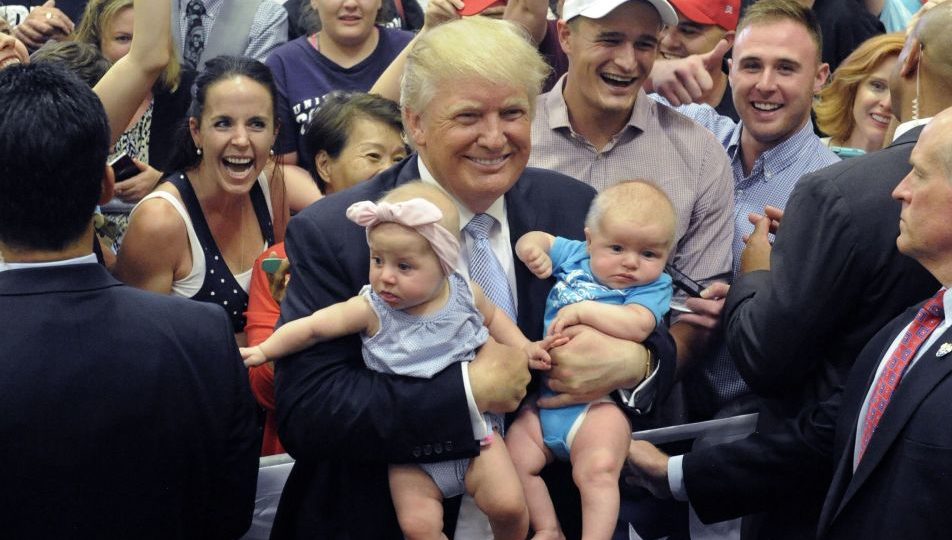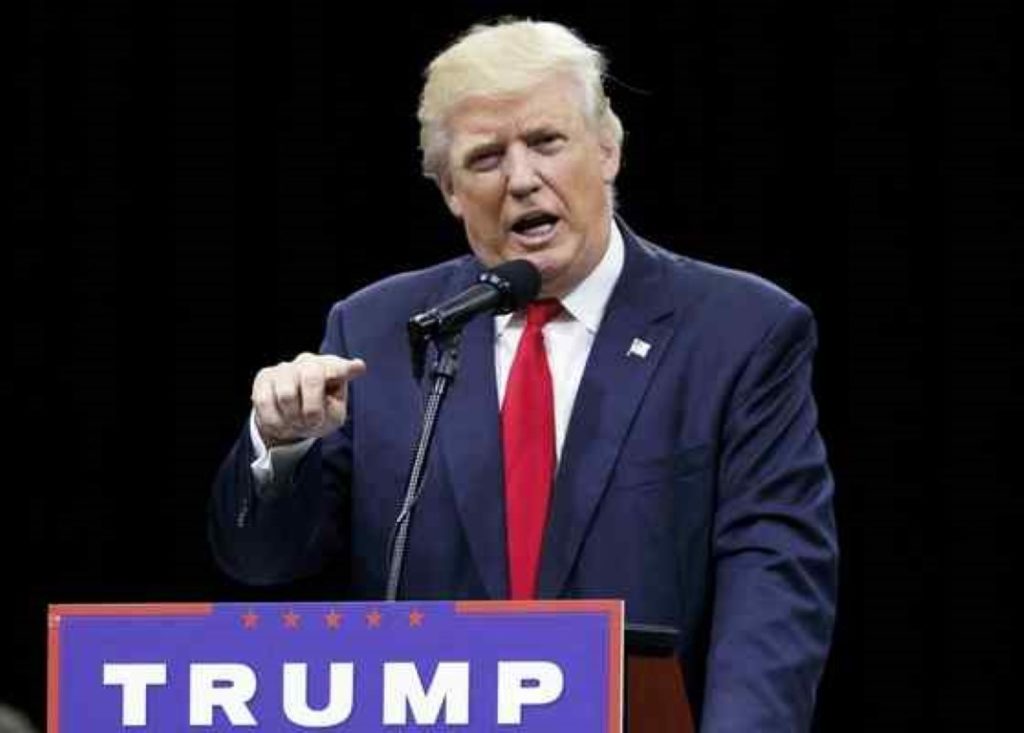Alabama DHR increases subsidies to help low-income families afford child care

The Alabama Department of Human Resources (DHR) has increased subsidies to help low-income families afford child care services thanks to the $40.7 million of additional Alabama child care funding authorized by the Omnibus Bill signed by President Donald Trump earlier this year. Rates will vary depending on the market rate in each region. For example, a center in Birmingham, located in the most costly region, will see the rate for toddlers and infants go from $118 a week to $142. In Fort Payne, located in the least costly region, will see the weekly rate for toddlers and infants go form $78 per week to $110 per week. The varying costs follow a market rate survey that was conducted by DHR in 2017 to determine child care costs in Alabama by region. “We are extremely pleased to be able to provide increased subsidy payments that should improve the quality of child care in Alabama,” stated DHR Commissioner Nancy Buckner. “This will make it easier for low income working parents to find quality child care while they work to improve their family’s financial situation.” An additional bonus Also effective October 1, 2019 is an increase in the yearly Quality Rating and Improvement System (QRIS) Bonus, as well as making the QRIS Star designation available to Group and Family Day Care Homes. All licensed child care providers in Alabama can participate in QRIS, earning from 1 Star to 5 Stars. The yearly bonus is higher for each Star in good standing. These bonuses are intended to encourage centers and homes to provide higher quality care for all children in child care throughout Alabama. “We believe that the QRIS will improve the quality of care in centers that participate in the program,” added Buckner “It is our hope that more centers across Alabama will see the value in participating in QRIS and that parents will want their children to attend centers that participate in this program. The children in Alabama deserve the very best in quality childcare.” Providers who receive a Star and also accept child care subsidy will receive a tiered rate for subsidy children. Each Star will make the provider eligible for 2 percent over the base subsidy rate 1 Star is 2 percent over base rate 2 Stars is 4 percent over base rate 3 Stars is 6 percent over base rate 4 Stars is 8 percent over base rate 5 Stars is 10 percent over base rate DHR spent $98 million for child care subsidy reimbursements to providers for Fiscal Year 2018 and plan to spend $112 in FY 2019.
Applauding the Ethics Commission’s decision on child care reimbursements

I come at the news of the Alabama Ethics Commission granting candidates the right use campaign funds for child care expenses, as a) a woman who has been an underdog, under-funded candidate (though at the time I did not have children) b) as a mother of two (with another on the way), and c) as someone who’s worked for candidates that have paid out of pocket for child care during campaigns and/or have brought their children to campaign events because of the high costs of care. On all fronts: I believe the decision is a good one, if not long overdue. Reimbursing for child care is in-line with how money is spent in campaigns, so long as you can pay for the other essential costs of campaigning, such as gas, food, etc. then there’s no reason to exclude child care. Far too often there are those who want to run for office, but lack the financial means to do so. They are essentially priced out successful campaigns. It doesn’t pay a lot to be an elected official, and it seems to cost exponentially more to run a successful campaign with every passing campaign cycle. Let’s be honest it costs a lot of money to campaign, especially when special interests, good or bad, are invested in candidates trying to keep or change the status quo. This opinion allows individuals, who otherwise lack the financial means to pay for child care out of pocket while they run, the opportunity to be in the arena and fight. For that I believe this decision is a great step forward. Campaigning can be exhausting (and it should be if done correctly). There are long hours and endless stops. These stops aren’t always appropriate for children and while I love to see kids involved in the political process, it should be the value of the experience that compels a candidate to bring them not the costs of child care. That seems to be a fact that was lost on those who opposed to the reimbursements, like Alabama Ethics Commissioner Charlie Price. Running for office shouldn’t come with a parenting penalty. Yes, one must take into account all personal factors when committing to a campaign and the potential for public service, and that should include the personal and financial tolls it will take on a family, but no family should be excluded or put out because of reasonable and justifiable costs associated with child care. There’s enough barriers already and we need good people to run and hold office — which absolutely includes parents. My hope is that as we move forward candidates don’t take advantage of this and keep the strict guidelines of campaign interest in mind when they seek reimbursements. There’s always going to be bad seeds, and there’s always going to be those who abuse the system, live off their campaign funds and have careless spending habits, but let’s face it: child care is an essential component for those parents who wants to get out there and make their voices heard. So simply put: Kudos to the FEC and Alabama Ethics Commission for making the right decision for families.
Following FEC ruling, Alabama candidate permitted to use campaign funds for child care expenses

The Federal Election Commission (FEC) in May ruled unanimously that federal candidates can use campaign funds to pay for child care costs that result from time spent running for office. The FEC justified their decision by saying the candidate’s child care needs were a direct result of her running for office and essential to her continuing to do so. Thus, the spending would not be considered a violation of rules that prohibit personal spending. Since the FEC only regulates federal election campaign finance, an Alabama candidate for the State House District 45, Democrat Jennifer Gray, requested a formal opinion from the Alabama Ethics Commission as to whether or not she could do the same. In her request Gray explained she would not have needed the child care had she need been a candidate. And without child care, she cannot participate in campaign activities like attending Chamber of Commerce meeting, meeting with constituents, canvassing or phone banking. Unlike the FEC, the Ethics Commission decision was not a unanimous one. In a 3-1 ruling, they decided Gray may use her campaign funds as such expenses would not exist “irrespective of the candidate’s campaign officeholder duties.” “[Gray] may use campaign funds to pay for the childcare expenses described in the request to the extent such expenses are incurred as a direct result of campaign activity and are tied to specific campaign events,” said Jerry L. Fielding, Chair of the Alabama Ethics Commission, in the decision. But the Commission didn’t make a blanket ruling for all candidates. They clearly concluded their ruling stating, “The conclusion reached herein applies only to these facts and may not be applied beyond these facts.” They also ruled that Gray must disclose her child care expenses so that donors know exactly where the funds are going. “The payments must be reasonable and customary for the services rendered, and the campaign must properly document the expenditures,” the decision read.
Determined, Pebblin Warren re-files bill to require oversight of faith-based day care centers

Tuskegee-Democrat state Rep. Pebblin Warren has once again introduced a bill that would require all day care facilities statewide to be licensed and regulated by the Alabama Department of Human Resources. For the second year in a row, Warren has filed the Child Care Safety Act, which endeavors to give oversight to child care centers for the protection and benefit of the children. Under existing law, the term day care center is defined as a child care facility that receives more than 12 children for daytime care. The term includes child care centers, day nurseries, nursery schools, pre-kindergartens, kindergartens, and play groups, including those that are operated as part of a private school if they provide care for more than four hours a day. Also under existing law, faith-based daycares are exempt from state regulations and standards. HB76, endeavors to change that. This isn’t the first time the notion of licensing daycares has come up in the Yellowhammer State. Last session the state Legislature considered HB277, the Child Care Safety Act, which would have required more oversight for faith-based daycares. While the bill overwhelmingly passed the House of Representatives, it ultimately died in the Senate in April. The issue of licensing all day cares was revisited last summer following the tragic death of 5-year-old Kamden Johnson at an unlicensed daycare in Mobile, Ala., Governor Kay Ivey said state laws need to change and that she believes all daycare centers operating in Alabama should be licensed through the state. “I strongly favor that if you’re going to be a daycare center for children you need to be licensed by the state,“ Ivey told reporters while attending the Association of County Commissions of Alabama Convention in Orange Beach in August. Alabama is only one of seven states that still allows daycare centers to operate without regulation if they are a part of a church or ministry. Under current law, child care centers may claim religious exemption status and avoid background checks for workers and facility inspections. Many purport Johnson’s death could have been avoided had the facility been licensed and the workers better vetted. According to VOICES for Alabama’s Children about half of the daycares in the state are uninspected, as evidenced by to numbers from the Department of Human Resources.
Donald Trump to unveil new child care affordability policies

Donald Trump is rolling out proposals Tuesday to make child care more affordable for working families, including a plan to guarantee new mothers six weeks of paid maternity leave and create new dependent-care savings accounts. Trump will unveil the plans in a speech in a Philadelphia suburb, a key area in a vital swing state as Trump tries to build his appeal with more moderate, independent voters – especially women. Child care is one of the biggest expenses many American families face, surpassing the cost of college and even housing in many states. The Republican presidential nominee, breaking with some conservative orthodoxy, would guarantee six weeks of paid maternity leave to employees whose firms don’t offer leave already. The campaign says it would be provided through existing unemployment insurance. The leave program would not apply to working fathers. Trump’s Democratic opponent, Hillary Clinton, has called for 12 weeks parental leave for both mothers and fathers paid for by taxes on the wealthy. Trump in August had proposed reducing child care costs by allowing parents to fully deduct the average cost of child care from their taxes. He is expected to flesh out that plan Tuesday, including expanding the deduction to include costs associated with caring for elderly dependent relatives. But as a tax deduction, rather than a tax credit, critics say the plan would primarily help more affluent households. More than 40 percent of U.S. taxpayers don’t make enough money to owe taxes to the federal government, meaning they would not benefit from a deduction. The deduction would apply only to individuals earning $250,000 or less, or $500,000 or less if filing jointly. Lower-income earners would receive child-care spending rebates through the existing Earned Income Tax Credit. Trump will also lay out plans to create new “Dependent Care Savings Accounts” that would allow families to set aside money to look after children or elderly parents. The accounts would allow both tax-deductible contributions and tax-free appreciation year-to-year, according to the campaign. It could be used to pay for child care, after-school programs and school tuition. To help lower-income parents, the government would match half of the first $1,000 deposited per year. For elderly dependents, the accounts could be used to help pay for services including in-home nursing and long-term care. Carmel Martin at the liberal Center for American Progress said the new savings accounts would create a potential tax shelter for wealthy people and that Trump’s proposals remain tilted to the rich because the low-income child-care rebates top out at $1,200. “It would definitely work for Ivanka, but not for most American families,” Martin said, referring to Trump’s daughter, who will introduce the candidate at his Tuesday speech. Trump is also expected to propose incentives for employers to provide child-care options at work. He has previously touted similar programs at his hotels and golf clubs – but The Associated Press has reported that those options are offered to guests and club members, not employees. Trump aides did not address how much the proposals would cost, but stressed that, when combined with other policies including Trump’s tax plan, it would be cost neutral. Trump is expected to elaborate on his tax plan in a speech this week. Clinton, meanwhile, proposes that no family should spend more than 10 percent of its income on child care. To achieve this goal, Clinton would seek to boost federal spending on child-care subsidies and provide “tax relief for the cost of child care to working families.” Those benefits would be offered on a sliding scale based on need. Since announcing the plan in May, Clinton has offered few details, including how it would be funded beyond raising taxes on wealthy Americans. Angela Rachidi at the American Enterprise Institute, a conservative think tank, said that Trump’s adjustments to his proposal show he is trying to make it less regressive and that he seems to share Clinton’s goals of helping families pay for child care. “Conceptually, both teams are putting out similar proposals,” Rachidi said, adding that some of the details may not work. “Republicans have been reluctant to move in that direction” on child care, she noted. Ivanka Trump surprised many at the Republican National Convention when she used her address to declare that her father’s administration would “focus on making quality child care affordable and accessible for all.” That was the campaign’s first significant mention of the topic. The rollout comes as Trump furiously tried to make inroads with moderate, often suburban, women, who have been reluctant to support a candidate who has made many derogatory remarks toward females. And it is part of the campaign’s hope to swing Pennsylvania, which has voted Democrat in event election since 1992. Republished with permission of The Associated Press.
No evidence Donald Trump provided child care services for employees

When Donald Trump vowed this week to make child care more accessible and affordable, it was just the second time during his White House campaign that he’s talked about an issue that affects millions of working Americans with young children. The first came months ago in Iowa, when the eventual Republican nominee touted his own record as a business owner during a candidate Q&A, telling voters he provided on-site child-care service for his employees. There is no evidence, however, that any such programs exist. The billionaire real estate mogul, who previously voiced his opposition to government-funded universal pre-K programs, said in Newton, Iowa, in November 2015 that he had visited many companies that offered workers on-site child-care centers – and added that he offered such programs himself. “You know, it’s not expensive for a company to do it. You need one person or two people, and you need some blocks, and you need some swings and some toys,” Trump said. “It’s not an expensive thing, and I do it all over. And I get great people because of it. Because it’s a problem with a lot of other companies.” Trump pointed specifically to two programs: “They call ’em Trump Kids. Another one calls it Trumpeteers, if you can believe it. I have ’em. I actually have ’em, because I have a lot of different businesses.” Trump went on to describe “a room that’s a quarter of the size of this. And they have all sorts of – you know, it’s beautiful – they have a lot of children there, and we take care of them. And the parent when they leave the job – usually in my case it’s clubs or hotels – when they leave the job, they pick up their child and their child is totally safe.” “They even come in during the day during lunch to see their child. It really works out well,” he said. But the two programs Trump cited – “Trump Kids” and “Trumpeteers” – are programs catering to patrons of Trump’s hotels and golf club. They are not for Trump’s employees, according to staff at Trump’s hotels and clubs across the country. “Trump Kids” is described on the Trump Hotel Collection website as “a special travel program designed to help make your next family vacation a big hit.” Its offerings include “kid-friendly amenities like kiddie cocktails, coloring books and no-tear bath amenities.” “The Trumpeteer Program” is described on the website of Trump National Golf Club in Charlotte, North Carolina, as “a program created specifically for our youngest members, ages three to twelve, which offers daily and evening child care, monthly newsletters and weekly events!” When asked about on-site child care, employees at Trump’s hotels and clubs across the country expressed confusion and explained the two programs are for guests and members only. “No, there’s no child care,” said Maria Jaramillo, 36, a housekeeper at Trump International Hotel Las Vegas, where workers have been pushing Trump to sign a union contract. Jaramillo is a mother of four children who has worked at the hotel for nearly eight years. “It would make it much more easy to take our kids to day care at work,” she said and laughed when told of Trump’s comments from Iowa about child care. “If they have child care, at least they should tell us.” A collection of Trump employee handbooks makes no mention of child care. The online Trump Hotels “employee benefits” section lists health care, tuition reimbursement, paid time off, complimentary golf and an internet café, but no on-site child care services. In New York, where the Trump Organization is based, the city’s health department database of child care centers has no record of any licensed facilities at any of Trump’s properties, aside from a private school that leases space at 40 Wall Street. Asked directly whether Trump’s businesses offered child care to employees, his presidential campaign responded with a statement from Jill Martin, vice president and assistant general counsel at the Trump Organization. “The Trump Organization is very proud of the family-friendly environment it fosters throughout its portfolio,” she said. “The policies and practices allowing employees to enjoy a healthy work-life balance vary from property to property. We take an individualized approach to helping employees manage family and work responsibilities.” The campaign did not respond to follow up questions, or agree to make Martin available for an interview. Trump on Monday proposed new tax exemptions for child care as part of what his aides say will be a larger push to make child care more accessible and affordable to working-class families. Child care is a top expense for many families, surpassing the cost of college and even housing in many states. “They’re suffering, they’re suffering,” Trump said. “We’re going to get them this much-needed relief.” Trump has credited his embrace of the issue to his daughter Ivanka, who vouched for her father’s treatment of his employees at the Republican National Convention last month. “When a woman becomes a mother, she is supported, not shut out,” she said. The new policy is a departure from Trump’s comments on the issue during the GOP primaries. In an interview with Fox News Business in October 2015, Trump expressed skepticism about paid family leave and said he opposed the idea of free pre-K. “Well, I don’t like it, because eventually you’re going to have to raise everybody’s taxes,” he said. “There is no such thing as free.” Republished with permission of the Associated Press.

